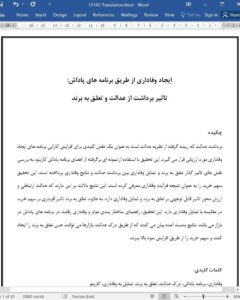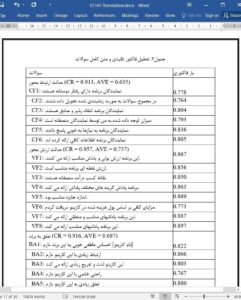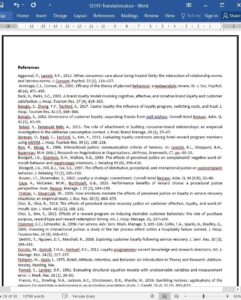Abstract
Grounded in the Theory of Justice, perception of fairness is evaluated as a key element to enhance the effectiveness of loyalty programs. Using a robust sample of casino reward program members, the research examines the mediating roles of brand attachment and loyalty intention between perceptions of fairness and loyalty outcomes. The study introduces share-of-wallet as a critical outcome of the loyalty process. The results indicate that communication-based and value-based fairness significantly influence brand attachment and loyalty intention. Moreover, brand attachment has a stronger impact on share-of-wallet than loyalty intention does. The research yields guidance for hospitality marketers to structure effective and competitive loyalty programs. The results add new insight into loyalty processes and extend the hospitality loyalty literature by suggesting brand attachment as a primary indicator for loyalty outcomes. The findings suggest that through perceived fairness, marketers can build brand attachment and increase share of wallet, thereby increasing profitability.
1. Introduction
To construct a positive relationship with customers, it is crucial for businesses to manage marketing strategies effectively as a means to satisfy customer needs and build customer loyalty. While customer retention is a fundamental element to enhance the firms’ profitability, loyalty is highlighted with the aim of establishing a lifetime relationship between the firms and their customers. One of the foremost methods for cultivating loyalty is the reward program. Reward programs are especially important for casinos, where members are rewarded based on their gaming activity, which translates directly into casino profitability.
5.4. Limitations, future research, and conclusion
Although the study brings valuable and meaningful insights, it has some limitations. The research findings were derived from a single casino reward program; therefore, the generalizability of the results may be limited. Nonetheless, the sample was large and comprised actual reward program members from a Las Vegas destination casino. Future research is recommended to embrace the members from other casinos to strengthen the study findings. For the data collection approach, the research only included those who have valid email addresses, which could introduce bias into the sample. Another limitation of the research is that the survey relied on self-report measures. Thus, the findings derived from self-reported data may not correctly reflect the complex loyalty process. Research is suggested to incorporate actual casino spending data tracked through the player cards of the casino loyalty program. We were not given access to that data for the current research.










